15 DevOps books for professional growth in 2020
-
7596
-
1
-
31
-
0
Despite numerous DevOps conferences, online training courses and certification exams, DevOps books remain one of the most popular and cost-efficient ways to obtain relevant knowledge. The books have several important benefits: you can read them at any moment, there are ready code examples for various cases, they teach the fundamentals and explain the logic behind them, so you can adapt it even if the next version of the tool has slightly different features or interface.
Thus said, we list 15 DevOps books you might find useful in 2020, both new additions to the DevOps library and the long-standing deskbooks that serve DevOps specialists for several years already. This list primarily includes the books for Junior DevOps engineers who need help mastering the fundamentals quickly — but some titles might become a welcome addition to the reading list of experienced system architects.
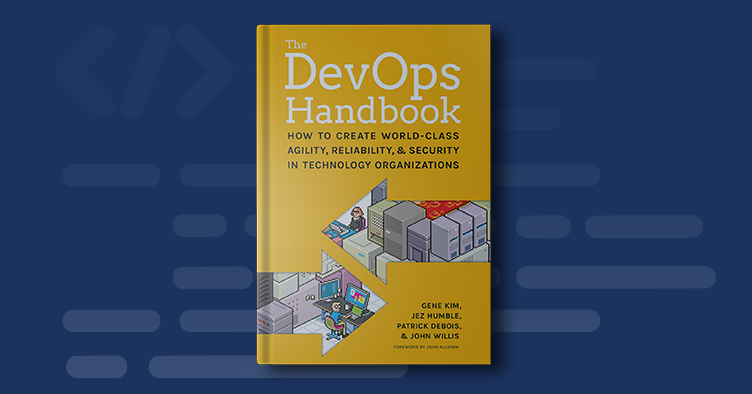
The DevOps Handbook: How to Create World-Class Agility, Reliability, and Security in Technology Organizations
This is the DevOps Bible, written by 4 well-known and influential experts of the DevOps industry. Gene Kim, Patrick Debois, John Willis and Jez Humble have produced a comprehensive handbook covering all aspects of DevOps culture, best practices, CI/CD implementation and organizational challenges a DevOps team has to overcome to accomplish a DevOps transformation in a technology company. Despite being published back in 2016, the book remains largely relevant, as it covers the culture and Three Ways of DevOps transformation, rather than covering a specific tool.
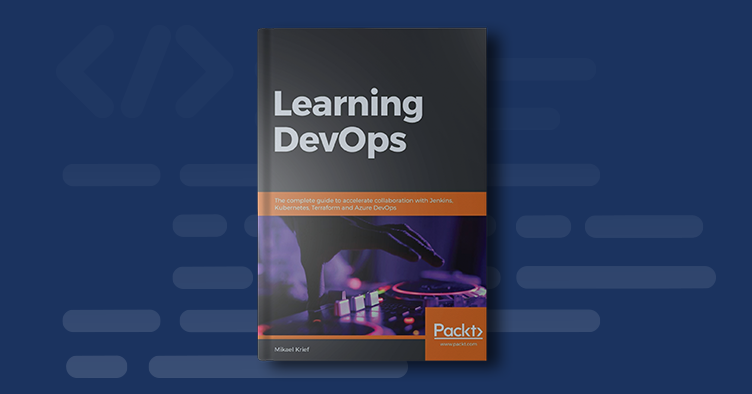
Learning DevOps
This book is published as a paperback copy in October 2019 and written by Michael Krief, a seasoned DevOps engineer from France, who worked as a DevOps technical officer for an international Azure consulting company. Due to his rich hands-on experience with planning and implementing MS Azure infrastructures, he has immense experience with ensuring business productivity, system reliability, scalability and security. Due to his passionate public work as a conference speaker and book author, and immense contribution to advancing the Azure DevOps community, Michael has received the Microsoft© Most Valuable Professional (MVP) accolade for 4 years in a row.
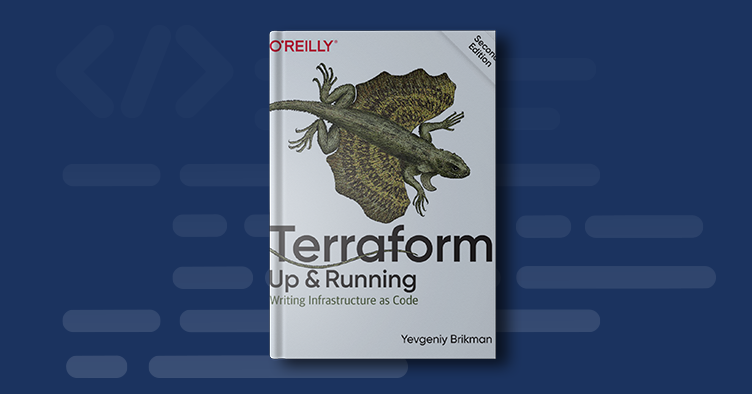
Terraform: Up & Running, Writing Infrastructure as Code
This is the second edition covering Terraform of a long-popular “Up& Running” series from O’Reilly Publishing that was published in October of 2019. The book is written by Yevgeniy Brikman, the co-founder of Gruntwork, the IT service provider who helps companies build efficient AWS systems using DevOps best practices. He worked as a DevOps engineer for LinkedIn, Cisco Systems, Thomson Financial and TripAdvisor and compiled his experience with Terraform into a book written for aspiring DevOps specialists who want to master Terraform modules and workflows, writing enterprise-grade production-ready Terraform manifests and working with the platform efficiently as a team.
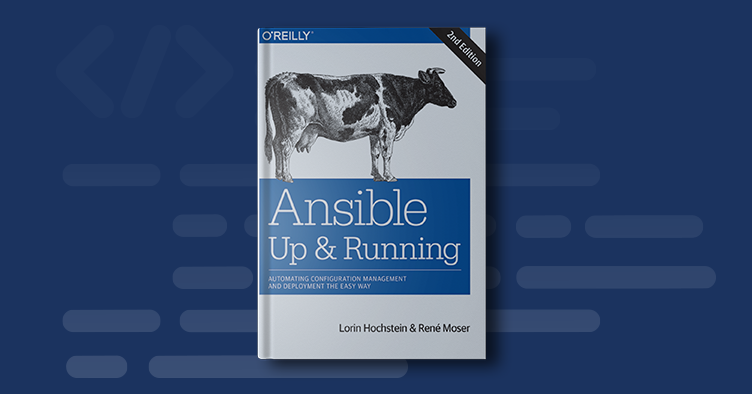
Ansible: Up and Running, Automating Configuration Management and Deployment the Easy Way
This is the second edition of the book, published in August 2017. The authors are experienced practitioners that helped multiple companies adopt DevOps and automate their IT operations. Their experience with automation of configuration management using Ansible is a great handbook for any aspiring software engineer. The book covers a wide range of topics:
- expla9ning the fundamentals and features of Ansible
- showing why Ansible is different from alternatives like Puppet
- teaching to work with YAML to write playbooks
- teaching to use Ansible variables and facts
- using SSH parallelism, pipelining and multiplexing to speed up playbooks
- creating Docker containers with Ansible
- deploying apps to Amazon EC2, Google Cloud, etc
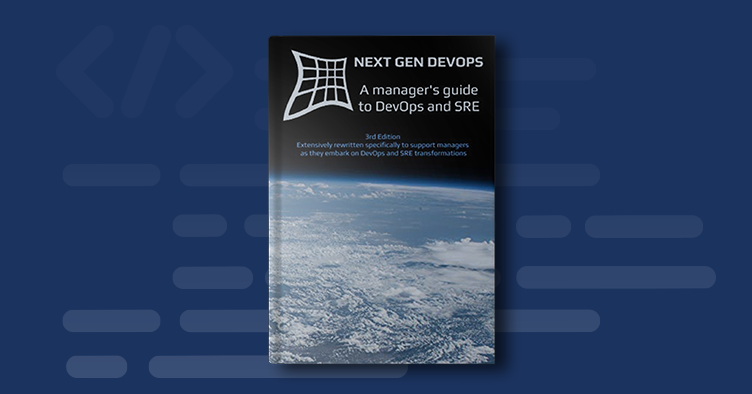
Next-Gen DevOps: a manager’s guide to DevOps and SRE
This is the 3rd edition of a trustworthy guide for managers who want to be aware and in control during the journey of their organization to DevOps and System Reliability Engineering. This book shows the IT operations from the managerial point of view and showcases best practices of DevOps adoption speed up and smoothen the transition to a more autonomous, flexible and independent style of working.
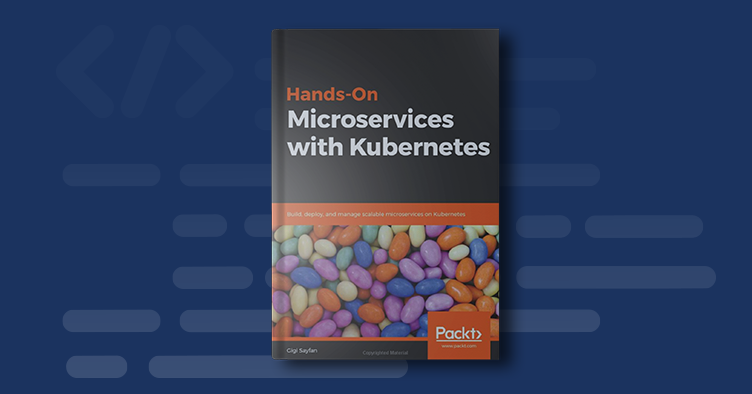
Hands-On Microservices with Kubernetes: Build, deploy, and manage scalable microservices on Kubernetes
With Kubernetes becoming the backbone of modern high-load systems at scale, this book covers the basics of developing and deploying the microservice applications atop Kubernetes. The book was published in July 2019 and is written by Gigi Sayfan — an expert with 20+ years of expertise in delivering enterprise apps across a variety of industries, programming languages and operating systems. The book covers all the step required for developers and DevOps engineers to master Kubernetes and microservices.
- Clarifying the benefits of running microservices using Kubernetes
- Creating CI/CD pipelines for delivering microservices to Kubernetes clusters
- Using Go development best practices to develop microservices
- Monitoring your Kubernetes cluster using open-source tools
- Building connections using RESTful and gRPS APIs
- Implementing serverless computing using Kubernetes
- Using service meshes to provide external authentication, authorization and traffic snapping
- Running Kubernetes cluster with Google Kubernetes Engine
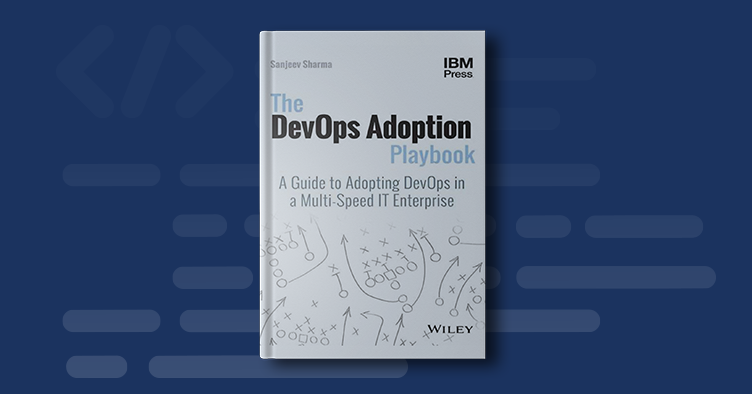
The DevOps Adoption Playbook: A Guide to Adopting DevOps in a Multi-Speed IT Enterprise
Sanjeev Sharma, the CTO at IBM shared his unique experience regarding the best practices on adopting DevOps workflows in large enterprise environments where multiple complex IT processes run in parallel with different speeds. By reading this book you will:
- Memorize the basic components and advantages of DevOps processes
- Learn to implement DevOps in multi-speed IT ecosystems
- Define the business goals that can be achieved when enterprises adopt DevOps
- Discover the best practices for DevOps adoption in enterprises at scale
- Understand how to ensure high speed of innovations with low risks and cost
- Meet and exceed your operational goals through superb software delivery efficiency
- Integrate DevOps for mainframe, web, desktop, mobile apps, as well as Docker containers, microservices and serverless computing.
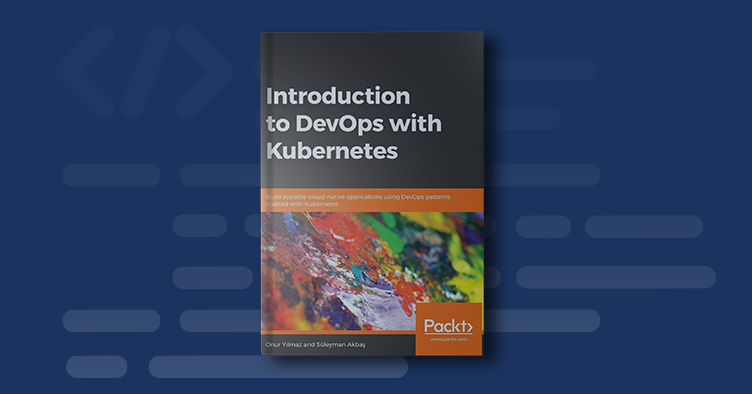
Introduction to DevOps with Kubernetes: Build scalable cloud-native applications using DevOps patterns created with Kubernetes
This book can become your one-stop-shop for learning all you must know about Kubernetes. The authors covered all aspects of DevOps methodology, Kubernetes glossary, usage best practices and advanced tricks — and much, much more.
- DevOps and Kubernetes fundamentals
- Learn to build and run Kubernetes clusters on various platforms
- DevOps best practices used with Kubernetes
- Secret management, storage and configuration in Kubernetes
- Using various update techniques with Kubernetes
- Scaling the clusters using built-in features
- Install cloud monitoring systems on Kubernetes and implement various troubleshooting techniques to manage the cluster
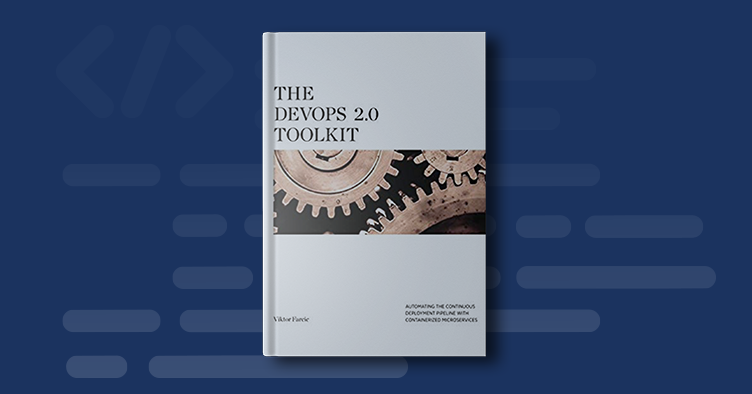
The DevOps 2.0 Toolkit: Automating the Continuous Deployment Pipeline With Containerized Microservices
This is one of the most recent books of DevOps, which means it contains the aggregated experience of the last couple of years and covers Docker container management in great detail. Victor Farcic, a well-known community expert and speaker on multiple conferences, has written a number of books on microservices that became workbooks for many aspiring DevOps engineers. This book is dedicated to app containerization and microservices, and using them to achieve a variety of business goals:
- enable faster and better software delivery using containerized microservices running on virtualized servers provisioned by configuration orchestration tools
- building CI/CD pipelines to ensure reliable and frictionless code delivery with minimal effort
- releasing new code with zero downtime and bugs while having an instant roll-back strategy in place
- design and monitoring of self-healing infrastructures with centralized monitoring and logging systems
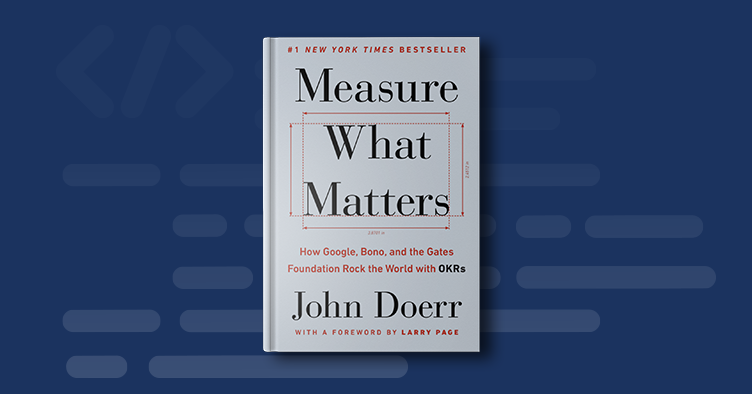
Measure what matters
While not specifically concentrating on DevOps, this bestseller explains the inner workings of an OKR — and Objectives and Key Results system outlined by John Doerr. Implementing this approach to organizational transformation helped the technology unicorns like Google, Twitter and Netflix to reach the next level of operational efficiency and align the efforts of their employees to achieving the common goals. This is an important perspective for Product Owners, Project Managers and Team Leads helping them build coherent and compelling objectives and motivate their teams to reach them in time and with high quality.
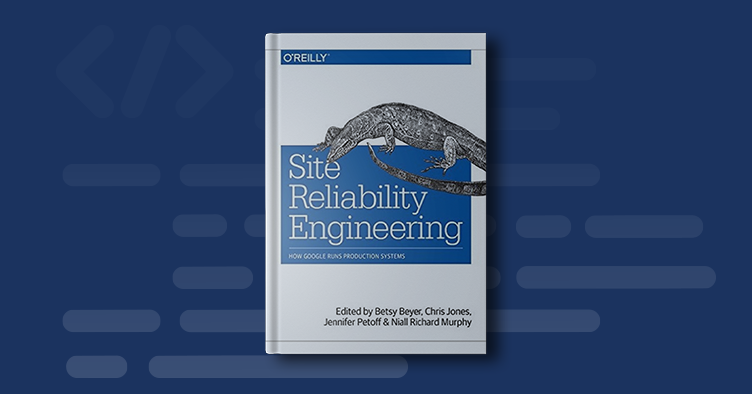
Site Reliability Engineering: How Google runs its production systems
Another great piece from O’Reilly publishing, covering the best practices of enabling DevOps workflows for developers. It is a collection of articles and essays from Google DevOps practitioners and the SRE team, which covers the benefits of letting the developers run their code themselves, instead of throwing it over the wall to be the problem of the Ops team.
The book covers various aspects of SRE operations:
- The difference between SRE and conventional software delivery practices
- What patterns, workflows and expertise domains denote the SRE specialist
- Theory and practical implementation of SRE to build distributed systems at scale
- Google best practices on DevOps engineer training and communication between the teams
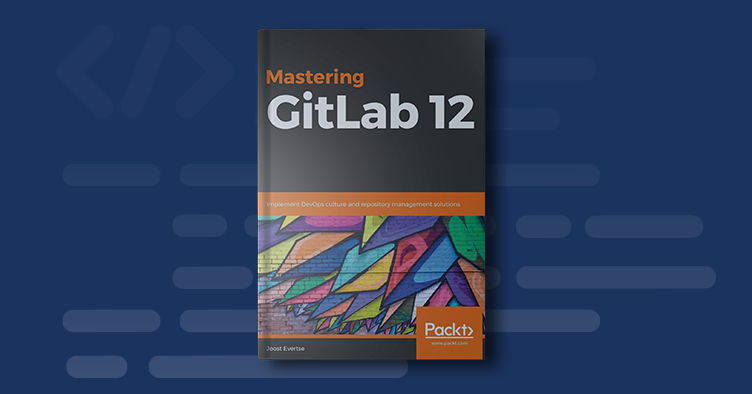
Mastering GitLab 12: Implement DevOps culture and repository management solutions
GitLab 12 has introduced multiple new features and reorganized a variety of processes. As it is one of the leading VCS platforms and directly affects the GitLab CI tool, which is widely used as a CI server across the IT industry, mastering the latest GitLab version is essential for all organizations that use this solution. The book covers various aspects of using GitLab 12 to automate your software delivery workflow:
- System installation to the cloud platform or on-prem servers
- Data migration from other VCS platforms to GitHub
- GitLab runner usage for delivering and configuring various software environments
- Using CI/CD features for building automated pipelines
- Integration with Prometheus and Grafana for monitoring your IT operations
- Helping adopt DevOps culture using various workflow management tools
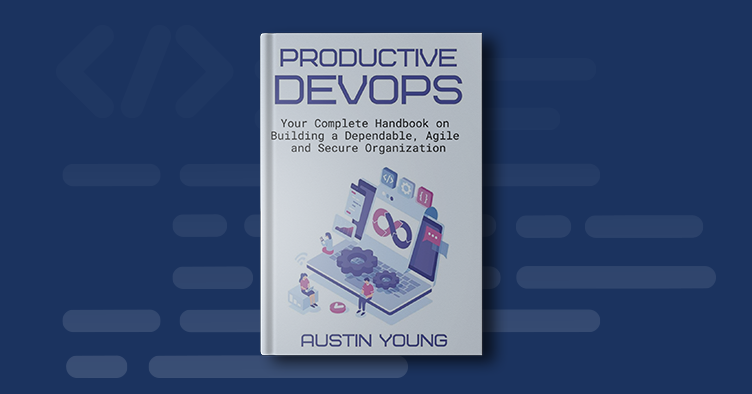
Productive DevOps: Your Complete Handbook on Building a Dependable, Agile and Secure Organization
This book by Austin Young explores the underwater reefs of DevOps transformation in IT organizations and provides best practices for solving them and building a productive DevOps culture. The author devotes lots of attention to the identification and removal of security threats in enterprise environments and covers the DevOps approaches used for that. While reading this book, you will learn to:
- Identify the potential benefits from DevOps transformation for your particular organization
- Foster the culture of innovation with minimal expenses and security risks
- Remove technical debt and performance bottlenecks by installing reliable CI/CD pipelines to automate manual operations across the SDLC
- Define the DevOps metrics relevant to your business objectives and incorporate them with the existing set of monitored parameters
- Implement DevSecOps to identify and mitigate threats
- Perform the shift-to-the left to integrate security measures into your DevOps workflows
- Build a plan for a system administrator to shift into a DevOps role
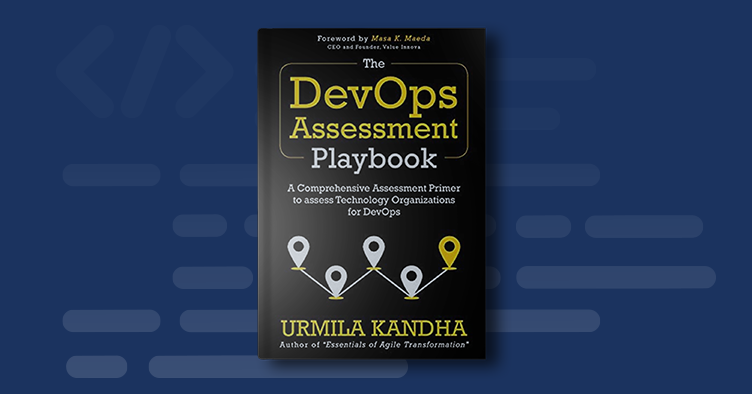
The DevOps Assessment Playbook: A Comprehensive Assessment Primer to assess Technology Organizations for DevOps
While many authors concentrate on the benefits of DevOps and describe building the CI/CD pipelines and microservices, this book pays attention to an equally important part of the DevOps transformation — the initial assessment and building the DevOps transformation roadmap. The author lists the best practices of DevOps readiness assessment and provides 500 questions that help identify the state of the existing infrastructure and workflows, highlight the existing technical debt and performance roadblocks — and prepare a DevOps Transformation Roadmap to solve these challenges.
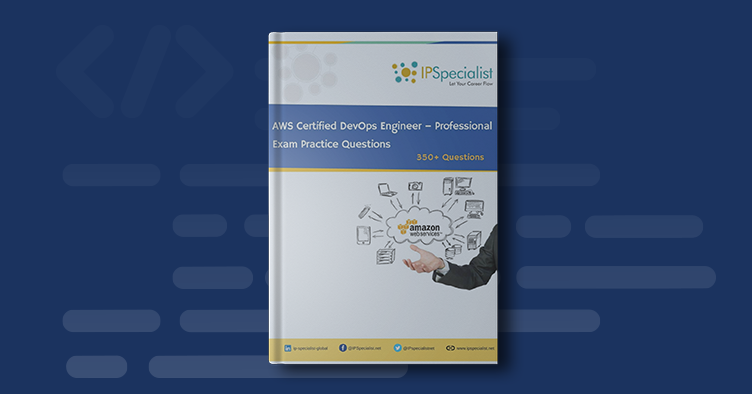
AWS Certified DevOps Engineer – Professional Exam Practice Questions: 350+ Questions
It is natural that most of the DevOps engineers want to be AWS-certified to prove their skills. This book lists the official AWS DevOps Engineer exam questions to get you prepared for what you will face during the practical exam. While the book is always one step behind and AWS updates its exam questions pretty regularly, knowing answers to these 350+ questions will surely be of great use to all aspiring DevOps engineers willing to obtain AWS certification. It can be of great help to practice before revising your certificate or practicing for obtaining a new one.
Conclusions on 15 DevOps books to read in 2020
As we promised, this list can be useful both to Junior DevOps engineers at the beginning of their journey and for seasoned system architects. Most of the books in it are well-known by the community and are written by renowned experts and DevOps practitioners. We are sure these books will be well worth the investment of your time and will become welcome additions to your bookshelf.
